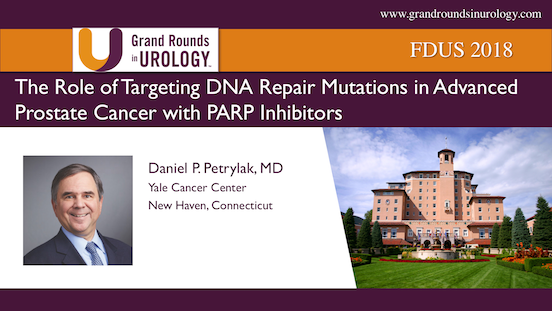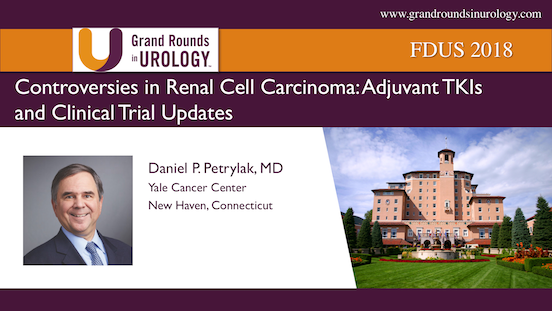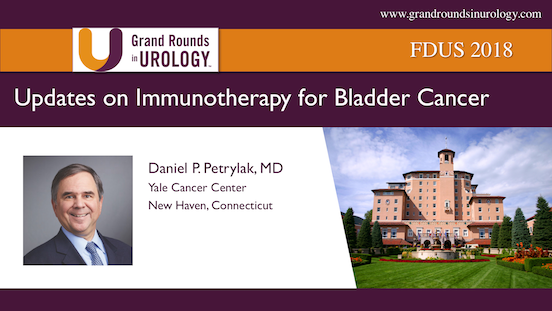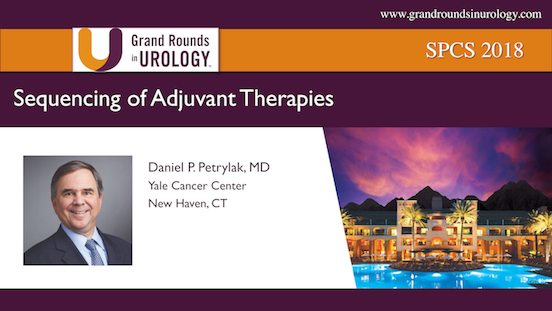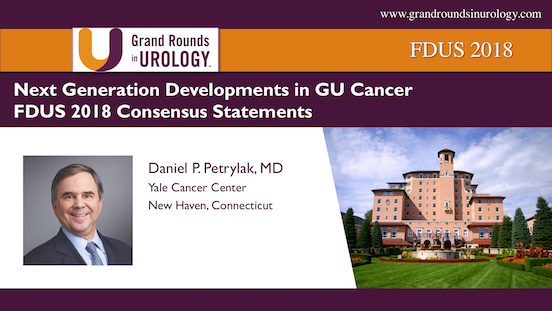The Role of Targeting DNA Repair Mutations in Advanced Prostate Cancer with PARP Inhibitors
Daniel P. Petrylak, MD, provides a brief update on clinical trials evaluating therapies that target DNA repair mutations in castration resistant prostate cancer (CRPC) patients, including poly (ADP-ribose) polymerase (PARP) inhibitors, agents that exploit hypoxia-inducing BRCAness, and next generation anti-androgens.
Read More
